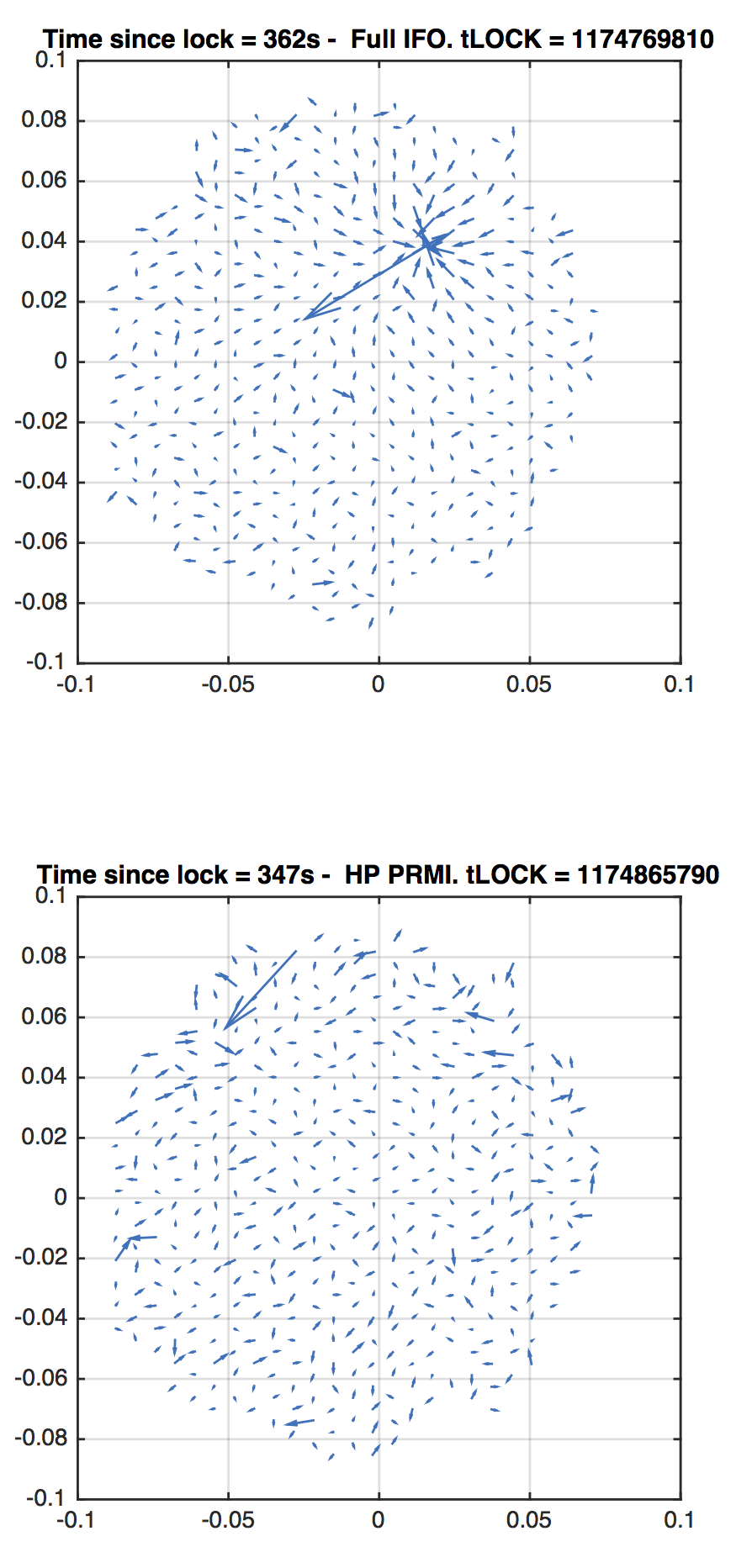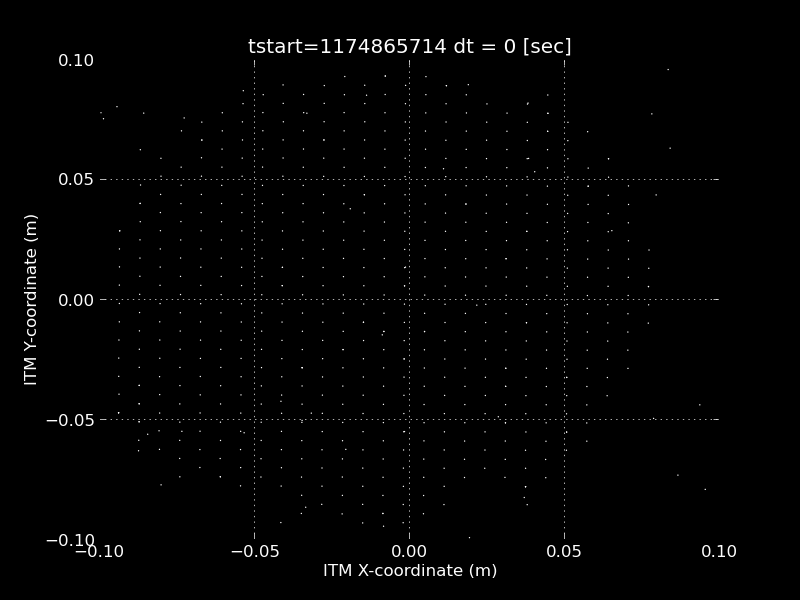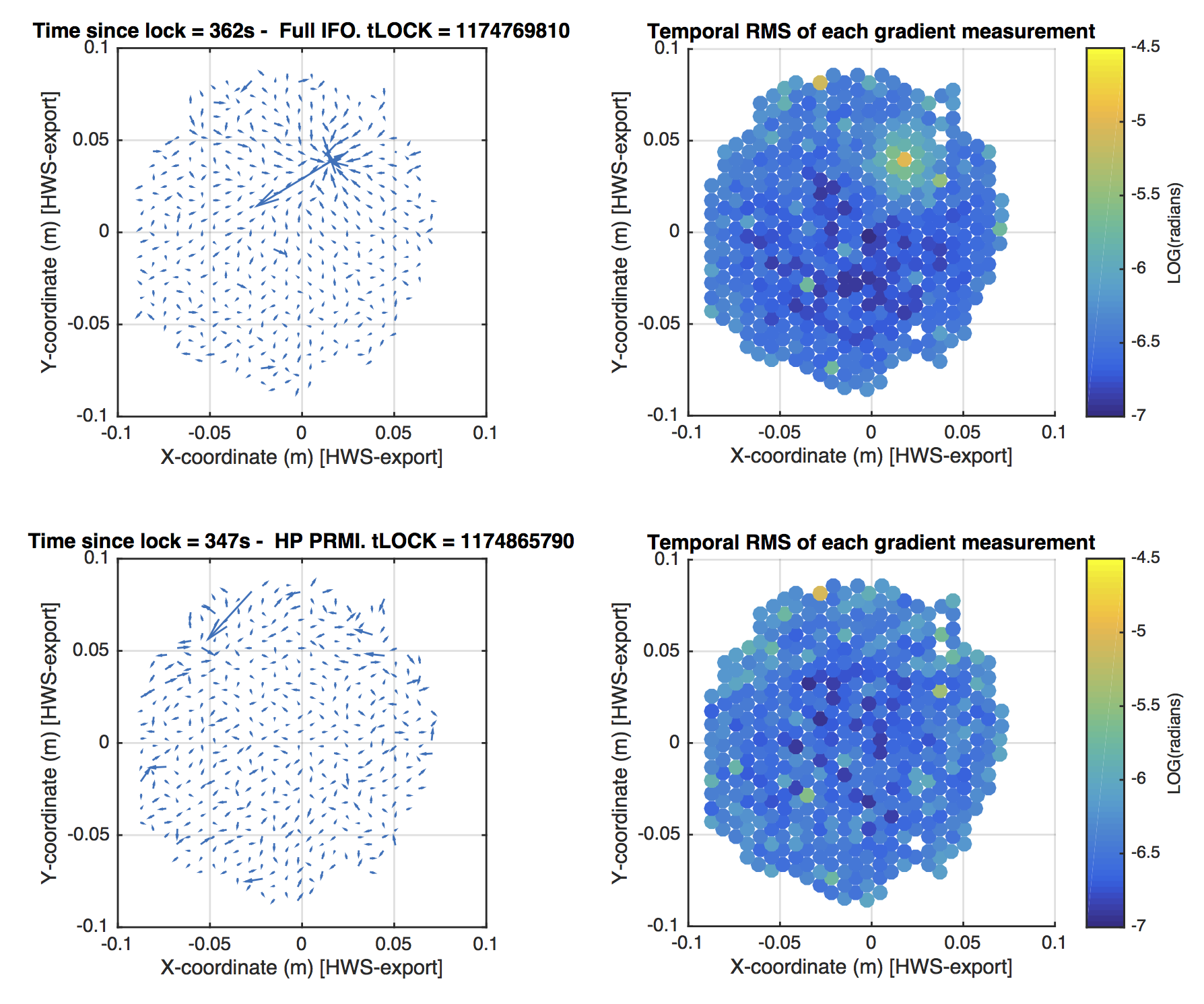Evan, Miriam,
We continued the blip-like injections as in aLog 35116. This time we could inject a few different shapes.
In the first set we injected a sine-gaussian with frequency 200 Hz. Again we started quiet, only times with * can be seen in DARM:
1174937465
1174937493
1174937520
1174937554 *
1174937649
1174937693 *
1174937758 *
1174937786 *
1174937836 *
In the second set we injected one of the blip glitches that showed a strong residual after the subtraction of the ETMY L2 MASTER signal from the NOISEMON (see aLog 34694). Since we are injecting in the DRIVEALIGN, we took the shape of the blip in that channel and injected that. Times (all can be seen in DARM, they should have three different SNRs):
1174937920 *
1174937956 *
1174938062 *
1174938144 *
1174938198 *
1174938231 *
In the final set, we injected a filtered step function that was sent to us by Andy. The first time was too quiet and did not show up in DARM, the second shows up quietly, and the third was fairly loud:
1174938333.5
1174938365.5 *
1174938397.5 *
Right after injecting the last one, the spectrum was showing some mid frequency (100 - 300 Hz) noise, which can be seen together with the injection in this omega scan. We did not believe this noise was originated by our injection, and we saw similar noise about half an hour later when we were back in observing mode, but we will try to inject it again at another opportunistic time just as a sanity check (L1 came back up after our last injection so we didn't want to take any more time).
NOTE: same as with the set of injections mentioned in the aLog pointed above, and as pointed also in aLog 35223 (first comment), these injections were performed while L1 was down and with H1 in comissioning mode. This means that none of these injections happened in coincident time, and that they are not included in analysis ready segments (as can be seen, for instance, in the summary pages).










